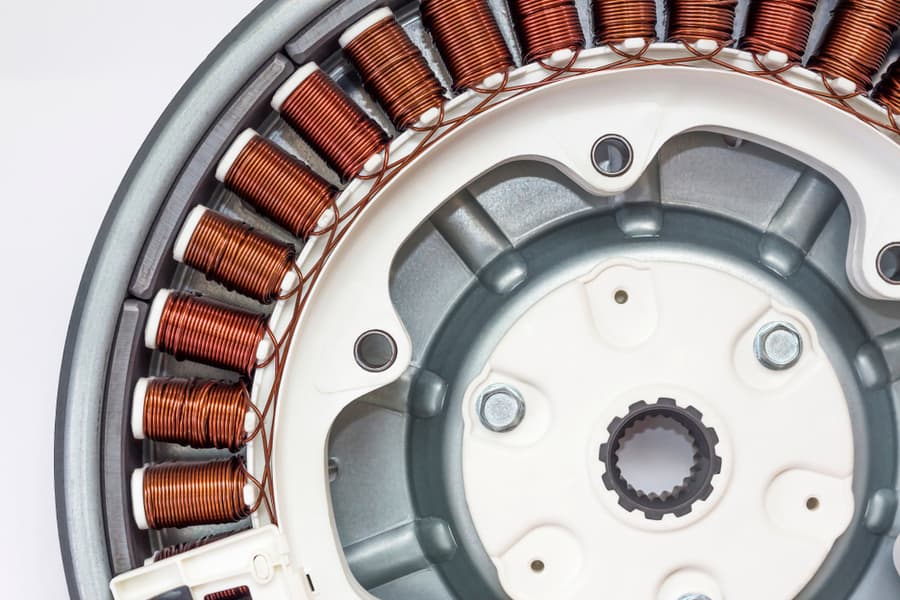
A washing machine motor is a central unit that drives the entire appliance. But it is one of the most complex components of the washing machine.
A faulty washing machine motor can cause problems such as drainage, washing, electrical, etc. If the washing machine motor burns out, nothing will work.
But why does your washing machine motor burn out?
Your washing machine’s motor is likely burnt when it smells burnt or makes screeching noises.
Some of the common reasons for this include the following:
- Dirt accumulation
- Worn-out bearings
- Worn drive belt
- Machine overloading
- Loose drum
- Bad agitator
- Age of machine
- Power fluctuation.
Your washing machine wouldn’t work when its motor burns out because it powers the functional internal elements such as the agitator, gearbox, clutch, pump, etc.
In this article, you will learn why your washing machine is burnt and what you could have done better to avoid it.
8 Reasons a Washing Machine Motor Burn Out
Washing machines’ motors are well constructed, with solid material, and designed to last between 10 and 15 years with proper maintenance and care.
But most people run into issues with their washing machine’s motor earlier than they should due to poor routine maintenance.
Below are some common reasons that can cause your washing machine’s motor to burn out:
1. Dirt Accumulation

With time, lint and dirt will accumulate in your washing machine. Finally, it will get to a point where the dirt becomes so much that it hinders the free movement of the motor.
As such, it causes the motor to overheat and eventually burn. In some cases, the dirt may clog the motor, stopping it from moving.
When you start your washing machine and hear a humming sound but the motor does not move, it’s a sign that the motor is clogged.
If you don’t free the dirt clogging the motor, the stress can cause it to overheat and eventually burn. You can prevent this by cleaning your washing machine regularly.
2. Worn-Out Bearings
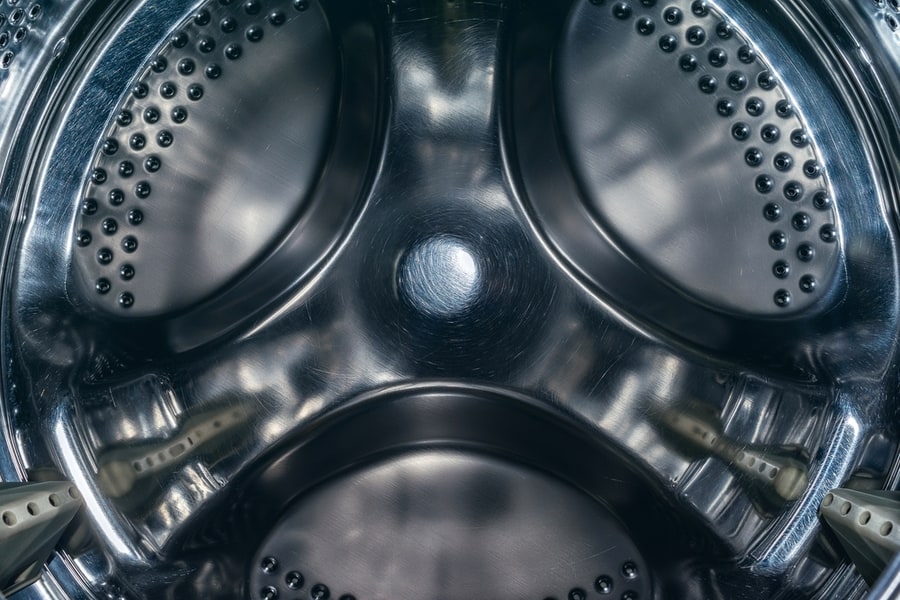
The bearing or metal rings support the rotation of the drum. It is often found at the back of the washer below the outer tub.
The bearing is crucial in ensuring the drum glides smoothly over the motor. But when the bearing is worn out, it puts a lot of pressure on the motor due to friction.
If a worn-out bearing is not addressed soon, it will worsen, causing heat build-up due to constant pressure. Eventually, the motor will burn out and will require a replacement.
Unfortunately, most washing machine motors are not designed to be repaired or disassembled, so when the bearing wears out, you must replace the motor.
3. Worn Drive Belt
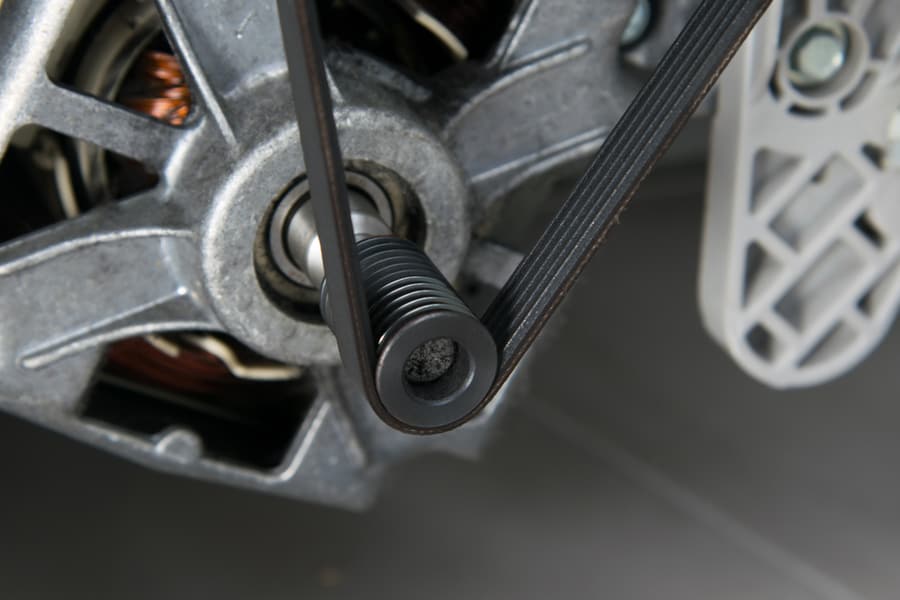
The drive belts in washing machines are V-belts like the belts used in some cars. The drive belt in washing machines connects the drum to the motor.
Due to regular usage, the drive belt wears out and will require replacement because having good tension in the belt is vital.
But when you change the belt, you must adjust the belt’s tension. If the belt is too tight, it will stress the motor’s sleeve bearings, which can damage it, leading to motor burnout.
Different washing machines have other specifications for the drive belt they can use. So, check the manual of your particular washing machine, but about 1/2 to 3/4 inches of depression is often ideal for the drive belt.
4. Machine Overloading
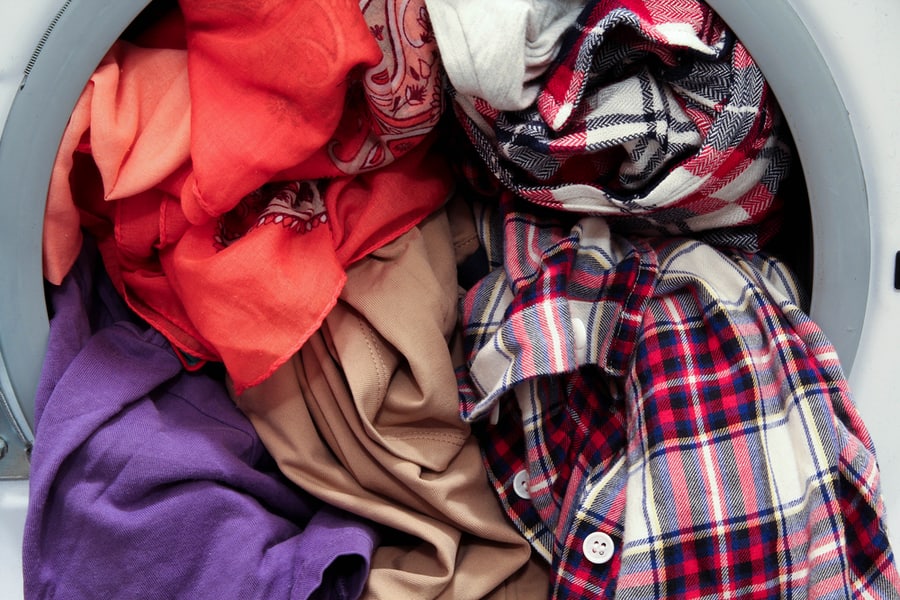
Overloading your washing machine, particularly a top-loading washing, can cause it to jam. Overloading the washer can also damage the motor and void your warranty.
The extra load you add to the washer multiplies the wear and tear the unit undergoes.
Overloading a washer will almost always put a lot of stress on the motor. If this stress is prolonged, it will overheat the motor and eventually burn it.
As such, it is vital to know the washing limit of your washing machine. If you have more laundry than your washer can take in one cycle, do the laundry multiple times. Or better still, invest in a larger washer that will fit your needs.
5. Loose Drum
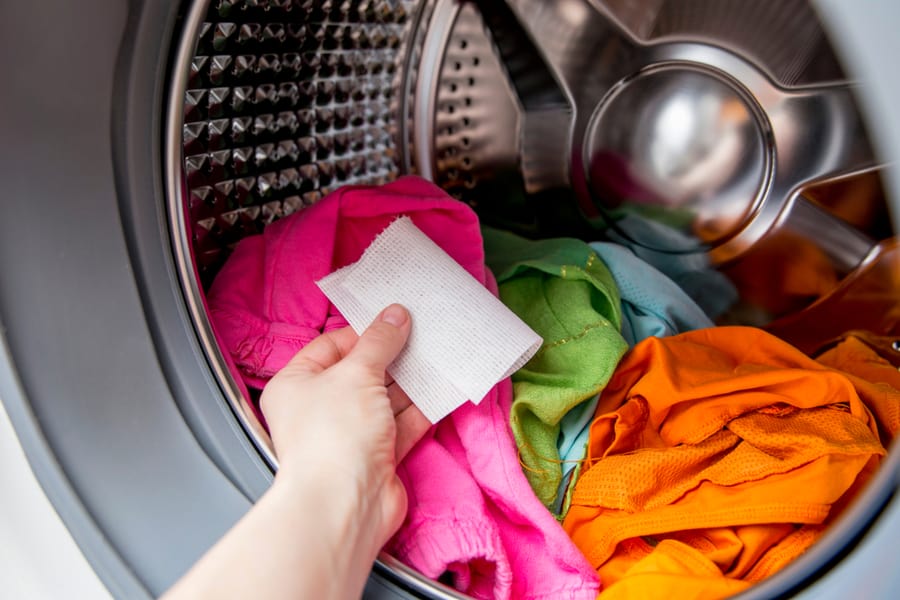
The drum is the section of the washer where you load your laundry. But in some cases, the drum may become loose. If the drum of your washer is loose, it can cause a lot of vibration during a washing cycle.
This excessive vibration can damage the attachment between it and the motor.
The continuous vibration of a loose drum can also detach the motor from its position. This problem is more common with top-loaded washing machines than in front-loading washers.
When the motor is out of place, it works under more stress, which can cause overheating and burnout eventually.
6. Bad Agitator

During a washing cycle, the agitator helps move the clothes around. It is a tall spindle, finned or vaned, at the center of the wash basket. The agitator twists back and forth, breaking down dirt from the laundry.
The agitator should move freely; if not, it will create a lot of friction and stress on the motor. As such, anytime the agitator tries to move your laundry, it creates a lot of heat.
If you suspect the agitator is faulty, inspect it by attempting to move your hands to see if it moves freely.
7. Age of the Machine
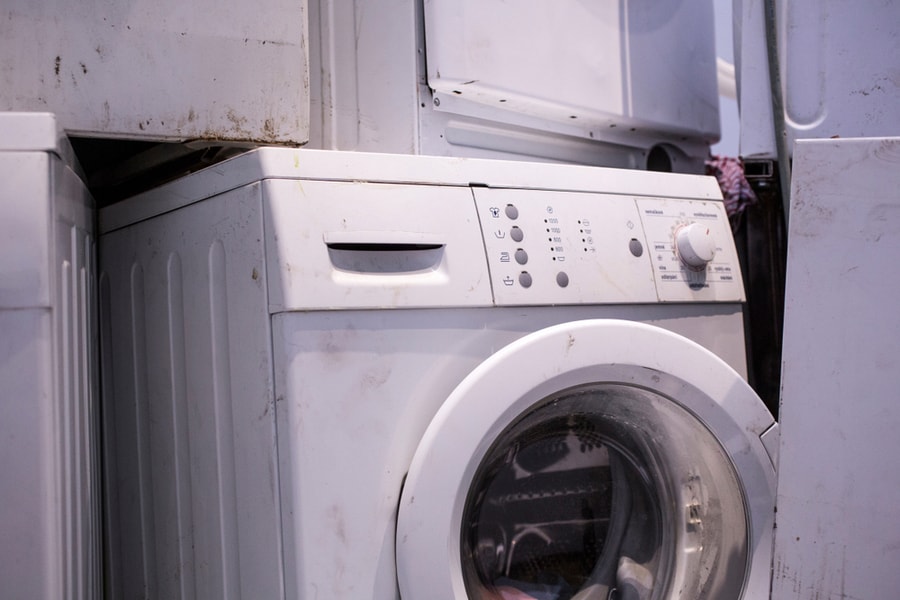
Most washing machines have an average lifespan of 10 years. If you have been using the washing machine for more than ten years, its motor will sooner or later give out.
Throughout its lifespan, the motor takes a lot of wear and tear every time you do your laundry.
The older the washer, the more considerable the damage will be. So, it’s essential to keep a close eye on the washer, as the likelihood of the motor burning out increases when it is extremely old.
8. Power Fluctuation
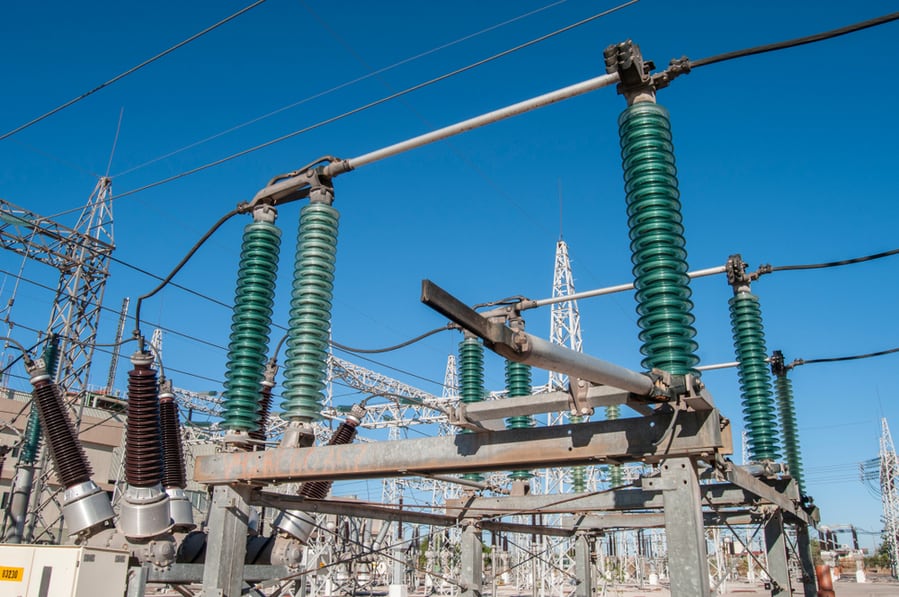
Finally, frequent power fluctuation can cause the motor not to work well. If the power is too low, the motor will work slowly, and if the light is too high, the motor will work fast. In either case, the motor will be put under an intolerable amount of stress.
Power fluctuation reduces the lifespan of your washer. And when there is a sudden power fluctuation, it causes short circuits, which can damage the motor.
To prevent this, use a good-quality voltage stabilizer or circuit breaker with the washer.
Conclusion
Protecting your washer motor from burnout is better than spending on repairs. However, you can efficiently protect your washer’s motor from burnout in every situation with good maintenance. So, ensure you take cleaning your motor seriously.
Frequently Asked Questions
Is It Worth Repairing a Washing Machine Motor?
While a new washing machine is a better option, it is cheaper to repair your washer motor when it burns out.
If you can replace the motor with a genuine OEM, you have nothing to worry about when you choose to repair the motor rather than getting a replacement.
How Long Is Too Long for a Washing Cycle?
A good rule of thumb about washing cycles is to avoid leaving laundry in the washer for too long.
A good rule of thumb about washing cycles is to avoid leaving laundry in the washer for too long.
Typically, anywhere between 8 to 12 hours is too long a time to keep washing. In addition, doing this can damage your cloth and cause mildew and smell.












